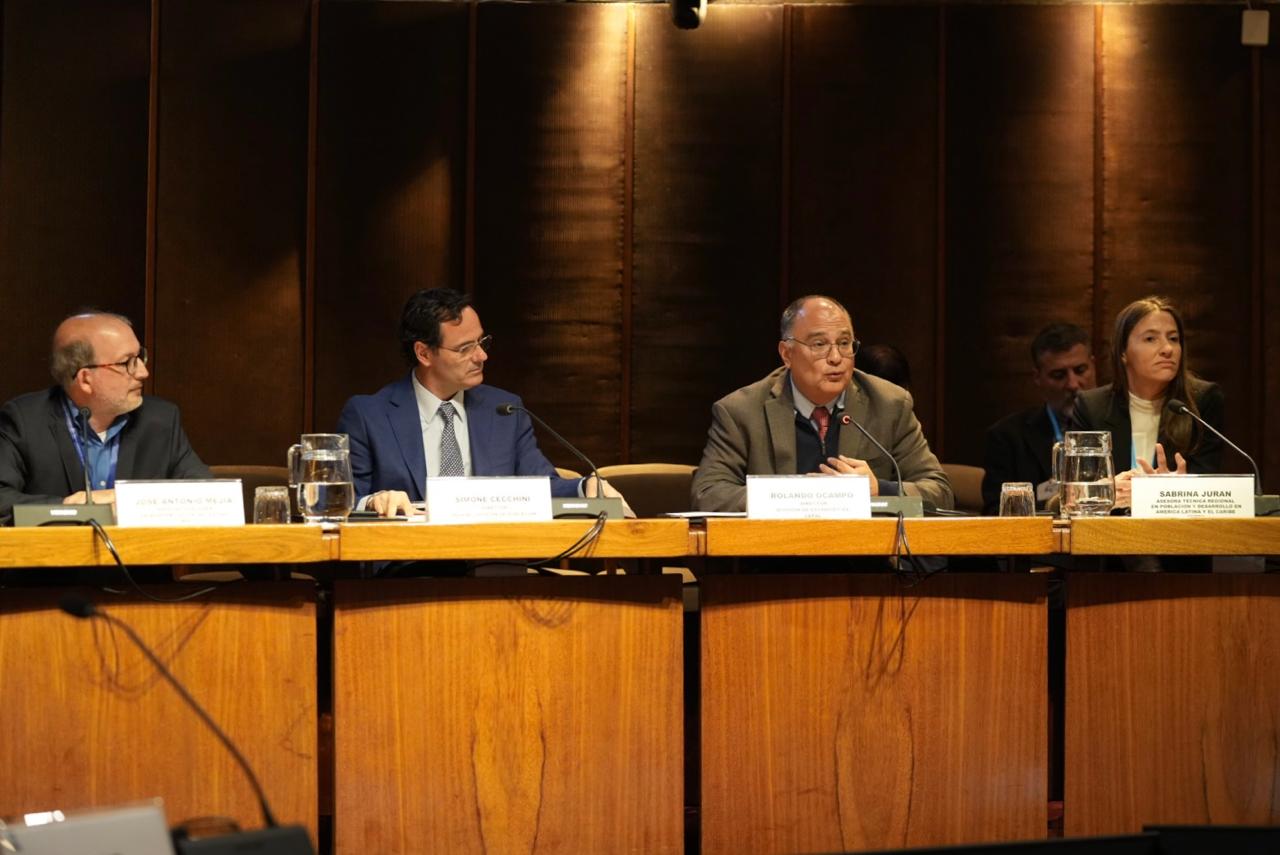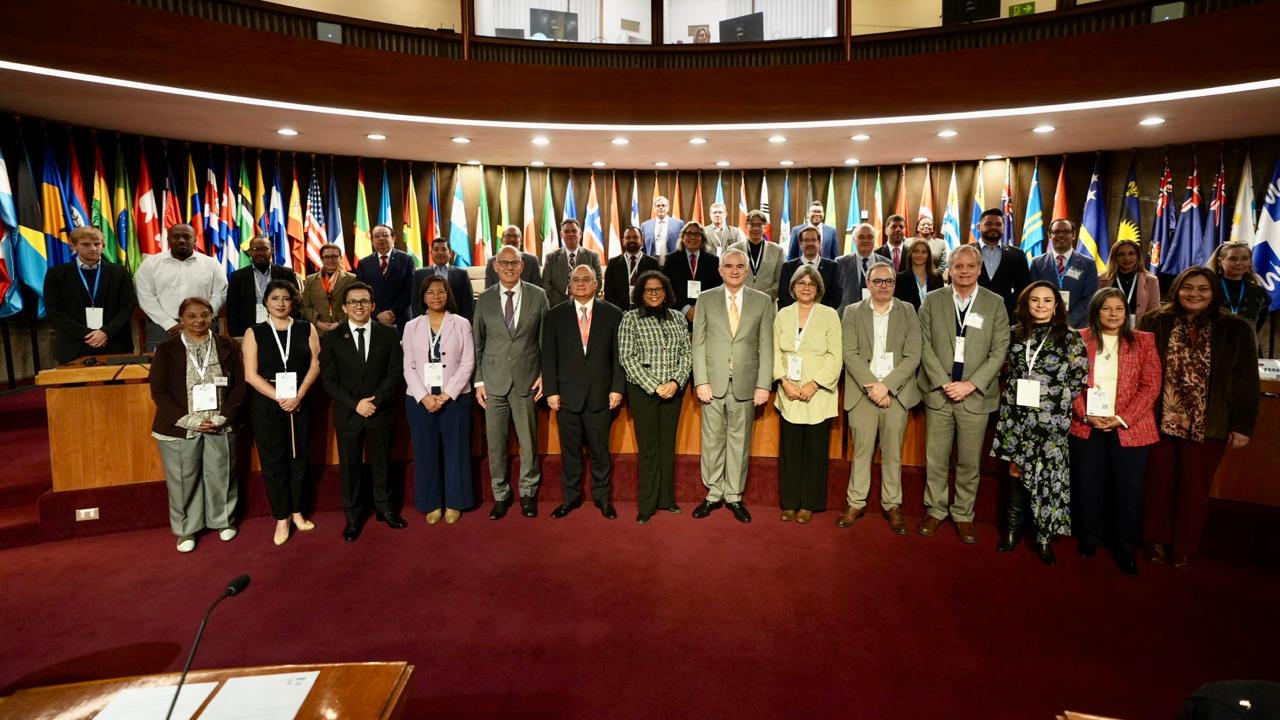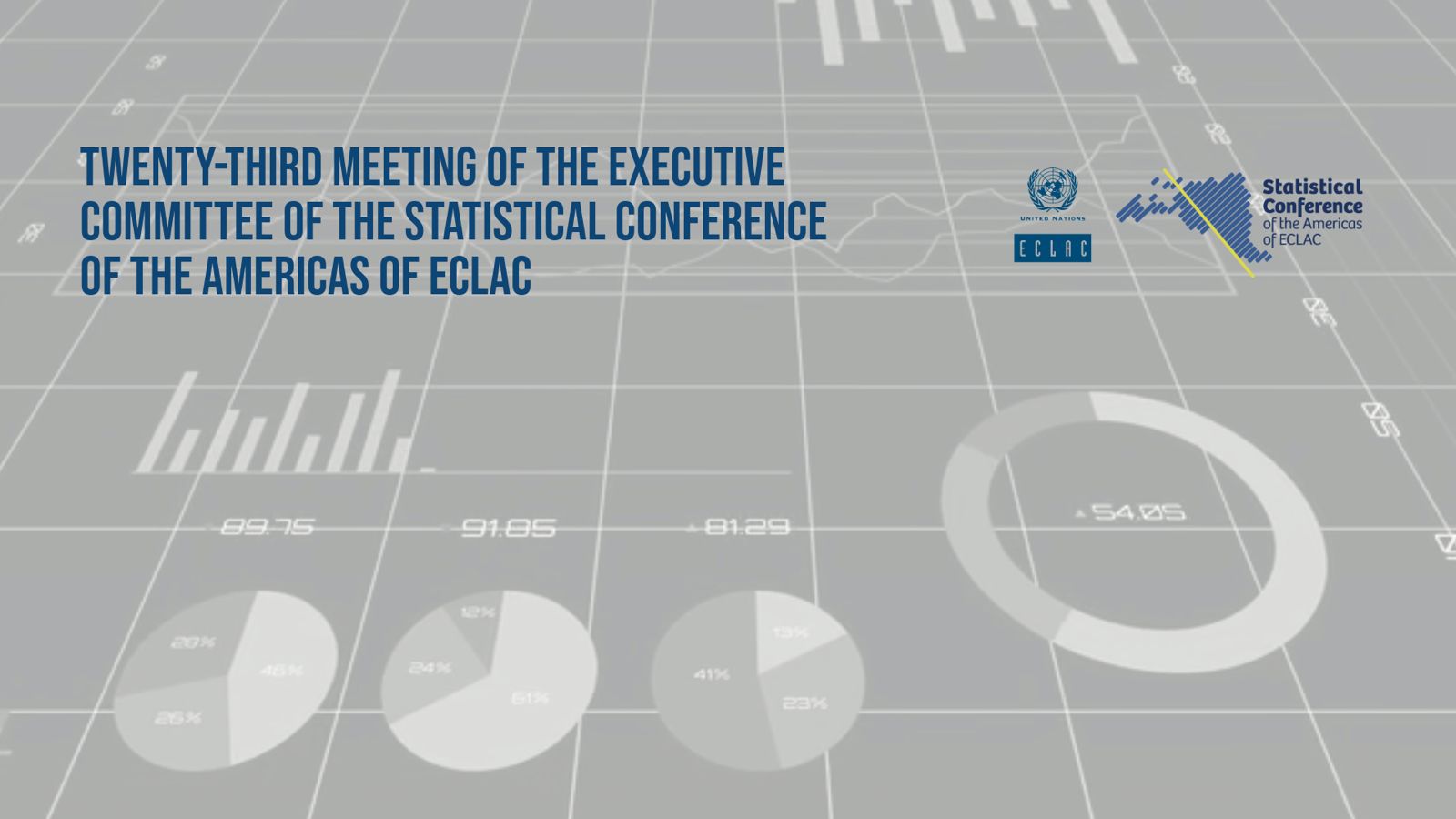Representatives of National Statistical Offices Share Innovations and Lessons Learned from the 2020 Census Round
Work area(s)
The event, held in the framework of the twenty-third meeting of the Executive Committee of the Statistical Conference of the Americas of ECLAC, sought to contribute to planning and preparing the 2030 censuses.

Representatives of national statistical offices from Latin America and the Caribbean shared innovations and lessons learned from the 2020 round of censuses during a regional seminar that sought to contribute to planning and preparing the 2030 census round, enhancing the learning and capacities acquired in light of the results and challenges. This event was held at the central headquarters of the Economic Commission for Latin America and the Caribbean (ECLAC) in Santiago, Chile.
The regional seminar on innovations in the population and housing census of the 2020 Round looking towards the 2030 Round – held in the framework of the twenty-third meeting of the Executive Committee of the Statistical Conference of the Americas of ECLAC – was organized jointly by the Latin American and Caribbean Demographic Center (CELADE)-Population Division of ECLAC and the Commission’s Statistics Division, with the collaboration of the United Nations Population Fund (UNFPA) and the Inter-American Development Bank (IDB).
The event was inaugurated by Rolando Ocampo, Director of ECLAC’s Statistics Division; Simone Cecchini, Director of the CELADE-Population Division of ECLAC; Sabrina Juran, Regional Technical Advisor to the United Nations Population Fund (UNFPA); and José Antonio Mejía, lead specialist at the Inter-American Development Bank (IDB).
In his opening speech, Simone Cecchini, Director of the CELADE-Population Division of ECLAC, highlighted the technological and conceptual innovations introduced by countries in the 2020 round, such as the widespread utilization of mobile capture devices, despite the complexity of statistical work and, especially, of carrying out censuses in a pandemic scenario.
“Innovations have strengthened census processes and in particular have contributed to conducting good censuses when they have been accompanied by adequate and timely budgets, competent management and technical teams, and sufficient time to carry out all the tests that such innovations require. We have also seen how flaws in planning and political pressures on time frames have worked to disadvantage,” he affirmed.
The Director of CELADE emphasized that in order to better tackle the new 2030 census round, which will begin in 2025, countries must capitalize on the lessons learned and reinforce those areas that concern them or where they performed in a less satisfactory manner.
“We should take advantage of this seminar to share and learn about the positive experiences and the difficulties and areas to be strengthened ahead of the 2030 round. This gathering is the starting point for a deep and comprehensive look at the 2020 round, which is necessary to achieve the desired levels of coverage and quality for the 2030 round of population and housing censuses,” he stated.
Sabrina Juran, Regional Technical Advisor to UNFPA, meanwhile, advocated for a process of honest reflection that can contribute to preparing the 2030 round of censuses by capitalizing on recent experience and bolstering joint capacities.
“We recognize the efforts made by the national statistical institutes and offices to face the challenges of the 2020 round. It is clear that the lessons learned in successful experiences can contribute to improving the next census processes, but it should be equally clear that the not-so-successful experiences are also key inputs for this improvement,” she affirmed.
José Antonio Mejía, a lead specialist at the IDB, stressed that one of Latin America and the Caribbean’s major advantages is the willingness that exists to share good and bad experiences, and coordinate efforts at a regional level, using horizontal cooperation.
“One of the things that distinguishes this region in census-related matters is that it has institutions with a great willingness to share, to learn from others and with others. This comes on top of the important benefit that the region has in being able to count on UNFPA, but with the particularity of having ECLAC and, especially, CELADE as well,” he stated.
During the day-long seminar, participants addressed issues such as the overview of 2020 population and housing censuses in Latin America and the Caribbean and the main challenges ahead of the 2030 round, the main challenges for strategic planning and political-social contexts, the virtues of new technologies in the strategy for disseminating census data, and the challenges in advancing Population Statistical Records.
Furthermore, the event included a panel discussion at which authorities spoke about census coverage and quality and different approaches from strategic, operational and communicational perspectives.
Related content

Regional seminar on innovations in the population and housing census of the 2020 Round looking towards the 2030 Round
This is a side event of the twenty-third meeting of the Executive Committee of the SCA-ECLAC. The objective of the seminar is to share innovations from the 2020 census round and lessons learned from…

Twenty-third meeting of the Executive Committee of the Statistical Conference of the Americas of ECLAC
This twenty-third meeting of the Executive Committee of the Statistical Conference of the Americas was held from 28 to 29 August 2024, at the headquarters of ECLAC in Santiago, Chile.

Representatives of National Statistical Institutes from Latin America and the Caribbean Will Analyze the Outlook for Statistical Production in the Region in the Coming Years
The Executive Committee of the Statistical Conference of the Americas of ECLAC will hold its twenty-third meeting on August 28-29, 2024 at the regional organization’s central headquarters in Santiago…
Type
Country(ies)
- Latin America and the Caribbean
